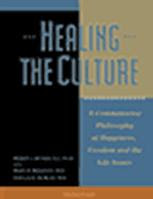We think that the sins we hug tight are ourselves, but we are wrong. They weigh us down, they deform us, they obstruct our sight.
-Anthony Esolen

Having mentioned it in a few previous posts, this post is my endeavor to focus on the subject of homosexuality and same-sex marriage...
Tolerance
Tolerance is commonly invoked as an argument for legalizing or sanctioning same-sex marriage. Namely, that the mainstream majority heterosexual world must learn to accept people who are different, and not fear or hate homosexual individuals.
I have no problem with this sentiment as far as it goes. Certainly we should neither fear nor hate any other individual or group of people. But accepting people does not mean accepting all behavior without question. Tolerance, as i have argued in a previous post, does not necessarily entail the abandonment of behavioral standards.
Justice and equity
Another major premise is that allowing same-sex marriage is simply a matter of fairness and equity, that it is unjust to withold this basic human right from a group of people who just happen to have a different approach to sexuality.
The problem here is with an illogical view of marriage as a 'right', defined by human society. The unspoken assumption is that by altering the definition of marriage, we can change what it is. But true definitions don't work that way. Human rights, at least the important, inalienable ones, are natural rights, determined by nature. That's what makes them inalienable and universal. Likewise the real definition of marriage is not subject to arbitrary change. It is what it is. (See natural law argument below.)
If marriage could be redefined to include same-sex couples, then it could also be redefined to include triples or any number of individuals. (This idea is already being pursued.) It could also be redefined to include non-human partners - someone who wants to marry his dog (or goat?). Once you start claiming the ability to redefine such things, the sky's the limit. Lest you be tempted to dismiss this as reductio ad absurdum, remember that, not many years ago, same-sex marriage would have been considered an absurdity.
Science
Some assert that, since science has proven homosexuality to be biologically determined, it must be recognized as purely natural and on a par with heterosexual behavior.
Scientific theories come and they go. There have been some studies seeming to show a genetic basis for homosexuality, while others dispute that claim. The principle of natural selection demands that, for a 'gay gene' theory to hold up, a pleiotropic argument would have to be advanced as well. That is, there would have to be a corresponding genetic benefit to offset the obvious biological handicap of the homosexual trait. To date, there seems to be no hint of evidence for such a beneficial pleiotropy. (See this article for further articulation of this and other points.) Other theories currently being advanced point to either developmental causes or non-genetic organic (chemical or microbiotic) causes. While far from certain, this general tack seems to be more plausible than the fading 'gay gene' theory.
This is all interesting, but not terribly germane. The debate over what underlies homosexual tendencies can never address the nature of marriage, or its heterosexual essence. Neither can science ever really address the rightness or wrongness of human behavior. I suppose that moral theology and legal jurisprudence may both draw from the well of scientific knowledge, but science itself must be concerned only with empirical observation, and be silent on matters of judgment, else it ceases to be science and becomes ideology instead. (See my Epistemology post.)
Consider: There may well be organic or genetic factors that dispose some individuals to alcoholism. Would this make the consumption of alcohol into a human right? (Ask a highway cop that hypothetical question.) In the same way, the question of whether homosexual behavior is chosen or biologically determined is an interesting question, but it has no real bearing upon whether the behavior should be sanctioned.
Scripture
Due to man's inherent religious instinct, many have attempted to justify homosexual behavior on Scriptural grounds.

This invariably involves 'discovering' the sin of Sodom (Gen. 13:13, 19:4-11) to be inhospitality rather than homosexual rapaciousness. Further, stringent Mosaic laws (Lev. 18:22, 20:13, Deut. 23:17) against homosexual relations are facilely dismissed as outmoded and irrelevant. In the New Testament (Rom. 1:26,27, 1 Cor. 6:9, 1 Tim. 1:10), the Apostle Paul is condescendingly stereotyped as a homophobe, or as an unthinking product of the narrow culture of his day. (Of course, the moderns making this charge are not shaped by their own cultural biases!) And, most wonderfully, Jesus' lack of explicit mention of the subject is taken to mean that He endorses homosexuality.
This 'explaining away' of relevant texts is a classic example of Scriptural eisegesis, the reading into Scripture to attain a predetermined interpretation. Moreover, it betrays an attitude of hostility or at least condescension toward the Bible. Rather than docilely receiving Scriptural truth as a disciple should, such eisegesis involves a rather arrogant critiquing of Scripture, judging the Word of God instead of allowing oneself to be judged.
Rather than turn this blog post into a lengthy Bible study, i would invite anyone interested to search the Scriptures for yourself. If you avoid the heroic intellectual gymnastics described above, and stick to an honest exegesis, letting the Bible teach you, i think it will be obvious enough that every Bible passage that speaks of homosexual activity, in both Old and New Testaments, clearly treats it as sinful.
Love
Following from the above misunderstandings, many assert that Christian love demands the acceptance of same-sex relations as being normal and good.
But true love isn't characterized by a bland approval of everything. This would not be love, but complacency. Christian love flows from love of God, and from a desire to obey and honor God in all things. The Christian is commanded to love the sinner but hate the sin. To do less is actually a failure to love as Jesus commands us to. (Ref: the opening quote above.)
Jesus loves the sinner, and then calls the sinner to repentance and to holiness. That's what real Christian love looks like.
Defense against aggression
Homosexuals are often portrayed as a persecuted minority unjustly attacked and oppressed by the powerful majority. This may be the silliest argument of all.
With very few exceptions, the popular movement to resist same-sex marriage is just that - a resistance movement. The proactive aggression is clearly coming from the militant gay culture, seeking to overthrow centuries-old social and legal norms. The counter-movement seeks to protect the institution of marriage and the family from such undue and destructive aggression.
The arguments for tradition
Although the pro-family counter-movement is mainly a resistance and a reaction to militant homosexual advocacy, it also involves several of its own proactive and fundamental points:
Marriage as foundational

Briefly, this argument is for recognition of marriage as the very foundation of civilization. The sanctioning of heterosexual monogamous marriage advances the domestication of men, the protection of women, and the rearing of children in stable environments. It provides men with the means of knowing their children and thus the motivation to provide for them. It allows men to become co-workers with other men instead of rivals. In other words, marriage makes civilization possible. This is not to claim that civilization has perfectly achieved these benefits. It is to say that marriage is the means of achieving them. Other types of social arrangements cannot advance these same essential principles.
Therefore, to the extent that a society embraces and is founded upon marriage with all its rights and responsibilities, it will be civilized. To the extent that it eschews these principles, it will cease to be civilized. Do not imagine that man became civilized and then decided to 'invent' marriage. You could even say it was the other way around: Marriage 'invented' civilization.
From this simple point it can be seen that any redefinition of marriage would detract from these foundational principles. This would be, in effect, to move away from civilization and toward savagery.
Natural law
Closely associated with natural rights (life, liberty, etc.), natural law is law which is determined by nature, and so is valid even in the absence of statutory law or positive law.
So, natural law regarding marriage derives from the essential nature of marriage. In its very nature, marriage can only be the pairing of a man and a woman. The complementarity, mutual dependency, and potential fecundity of this arrangement are of the essence, and objectively so, not subject to arbitrary interpretation. (I also explored this thought further in a previous post.)
Common law
What nature is to natural law, history is to common law. The plain fact is that for centuries upon centuries human societies and their governments have recognized marriage as being between a man and a woman. The long-standing precedent is an important argument in its own right.
Some have disingenuously argued that, just as the long-standing institution of slavery was abolished, so should the common law precedent of monogamous heterosexual marriage be revisited. But for a long-standing law to be overthrown, it should first be proven to be flawed.
The American institution of slavery, only a couple of centuries old, was clearly flawed, and so its demise was just and right. Roe v. Wade, now 30+ years old, is also flawed. The common law institution of heterosexual marriage, millenia old, is not flawed. (In fact, as argued above, it can be seen as the foundation of civilization, and thus preceding all other legal precedents.)
Love and tolerance
As noted above (and here), the Christian concept of love goes way beyond mere passive acceptance, to the much more compassionate offer of repentance and forgiveness.
It is very honest and loving to agree with God that homosexuality is a problem, not a gift. Having homosexual tendencies and temptations is not in itself sinful. Exercising one's free will to engage in homosexual acts is sinful. But it doesn't end there; there is remedy in God's grace.
Repentance and forgiveness
There is first of all the remedy of forgiveness for sin. That is what Jesus died on the cross for, so that sinners could be forgiven.
 He didn't die so that we could excuse ourselves, or identify ourselves with our sin, but so that we could reject sin and be forgiven. This necessarily involves repentance - agreeing with God that our sins are evil, and that we should try to avoid doing them. The good news for all of us is that Jesus keeps on offering forgiveness for our repented sins, even when we fail again and again and again and again... I suspect that the vast majority of people repeat the same embedded and habitual sins over and over. That's not good, and one should always endeavor to gain mastery over such sin. But it's not beyond God's grace. Repeated sin, when confessed with contrition, is taken care of. Sin that is excused or rationalized is not. Jesus didn't die for our excuses, but for our sins.
He didn't die so that we could excuse ourselves, or identify ourselves with our sin, but so that we could reject sin and be forgiven. This necessarily involves repentance - agreeing with God that our sins are evil, and that we should try to avoid doing them. The good news for all of us is that Jesus keeps on offering forgiveness for our repented sins, even when we fail again and again and again and again... I suspect that the vast majority of people repeat the same embedded and habitual sins over and over. That's not good, and one should always endeavor to gain mastery over such sin. But it's not beyond God's grace. Repeated sin, when confessed with contrition, is taken care of. Sin that is excused or rationalized is not. Jesus didn't die for our excuses, but for our sins.
Healing
There is sometimes a remedy for the underlying same-sex attraction as well. Jesus can and does heal individuals, replacing their interior brokenness with His wholeness. Miracles of grace still happen.
Holiness
For many, the homosexual feelings never go away. These individuals have a heavy cross to bear, one of chastity and self-control. In such cases, the decision to bear the cross is the only 'remedy'. This becomes their path to holiness, and their very powerful means of glorifying God, achieving their own sanctification, and making the world a better place. For one very moving example, see this story.
The call to holiness is, of course, given to all. The specific cross we each have to bear on our way is unique to each one.
From the Catechism
Here's what the Catholic Catechism has to say on the subject:
Chastity and homosexuality
2357. Homosexuality refers to relations between men or between women who experience an exclusive or predominant sexual attraction toward persons of the same sex. It has taken a great variety of forms through the centuries and in different cultures. Its psychological genesis remains largely unexplained. Basing itself on Sacred Scripture, which presents homosexual acts as acts of grave depravity,[140] tradition has always declared that "homosexual acts are intrinsically disordered."[141] They are contrary to the natural law. They close the sexual act to the gift of life. They do not proceed from a genuine affective and sexual complementarity. Under no circumstances can they be approved.
2358. The number of men and women who have deep-seated homosexual tendencies is not negligible. This inclination, which is objectively disordered, constitutes for most of them a trial. They must be accepted with respect, compassion, and sensitivity. Every sign of unjust discrimination in their regard should be avoided. These persons are called to fulfill God's will in their lives and, if they are Christians, to unite to the sacrifice of the Lord's Cross the difficulties they may encounter from their condition.
2359. Homosexual persons are called to chastity. By the virtues of self-mastery that teach them inner freedom, at times by the support of disinterested friendship, by prayer and sacramental grace, they can and should gradually and resolutely approach Christian perfection.
Amen. Much more articulate than my blatherings.
 I would like to commend those few Catholic parishes in which yesterday's 2nd reading was proclaimed in its long form (Col. 3:12-21) rather than in its short form (Col. 3:12-17). The short option omits the part about wives being subject to their husbands. Rather than appear (gasp!) old-fashioned, or (double gasp!) patriarchal, or risk (triple gasp!) offending someone, most parishes simply skip the risky portion. A few priests may feebly attempt a clever it-isn't-what-it-looks-like dismantling of the text. Most just ignore it, and hope nobody notices.
I would like to commend those few Catholic parishes in which yesterday's 2nd reading was proclaimed in its long form (Col. 3:12-21) rather than in its short form (Col. 3:12-17). The short option omits the part about wives being subject to their husbands. Rather than appear (gasp!) old-fashioned, or (double gasp!) patriarchal, or risk (triple gasp!) offending someone, most parishes simply skip the risky portion. A few priests may feebly attempt a clever it-isn't-what-it-looks-like dismantling of the text. Most just ignore it, and hope nobody notices.

































